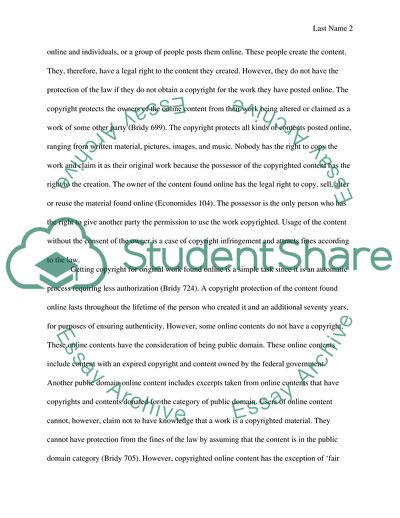Cite this document
(Online Content Owners Essay Example | Topics and Well Written Essays - 1500 words, n.d.)
Online Content Owners Essay Example | Topics and Well Written Essays - 1500 words. https://studentshare.org/information-technology/1865348-who-owns-the-content-found-online
Online Content Owners Essay Example | Topics and Well Written Essays - 1500 words. https://studentshare.org/information-technology/1865348-who-owns-the-content-found-online
(Online Content Owners Essay Example | Topics and Well Written Essays - 1500 Words)
Online Content Owners Essay Example | Topics and Well Written Essays - 1500 Words. https://studentshare.org/information-technology/1865348-who-owns-the-content-found-online.
Online Content Owners Essay Example | Topics and Well Written Essays - 1500 Words. https://studentshare.org/information-technology/1865348-who-owns-the-content-found-online.
“Online Content Owners Essay Example | Topics and Well Written Essays - 1500 Words”. https://studentshare.org/information-technology/1865348-who-owns-the-content-found-online.


